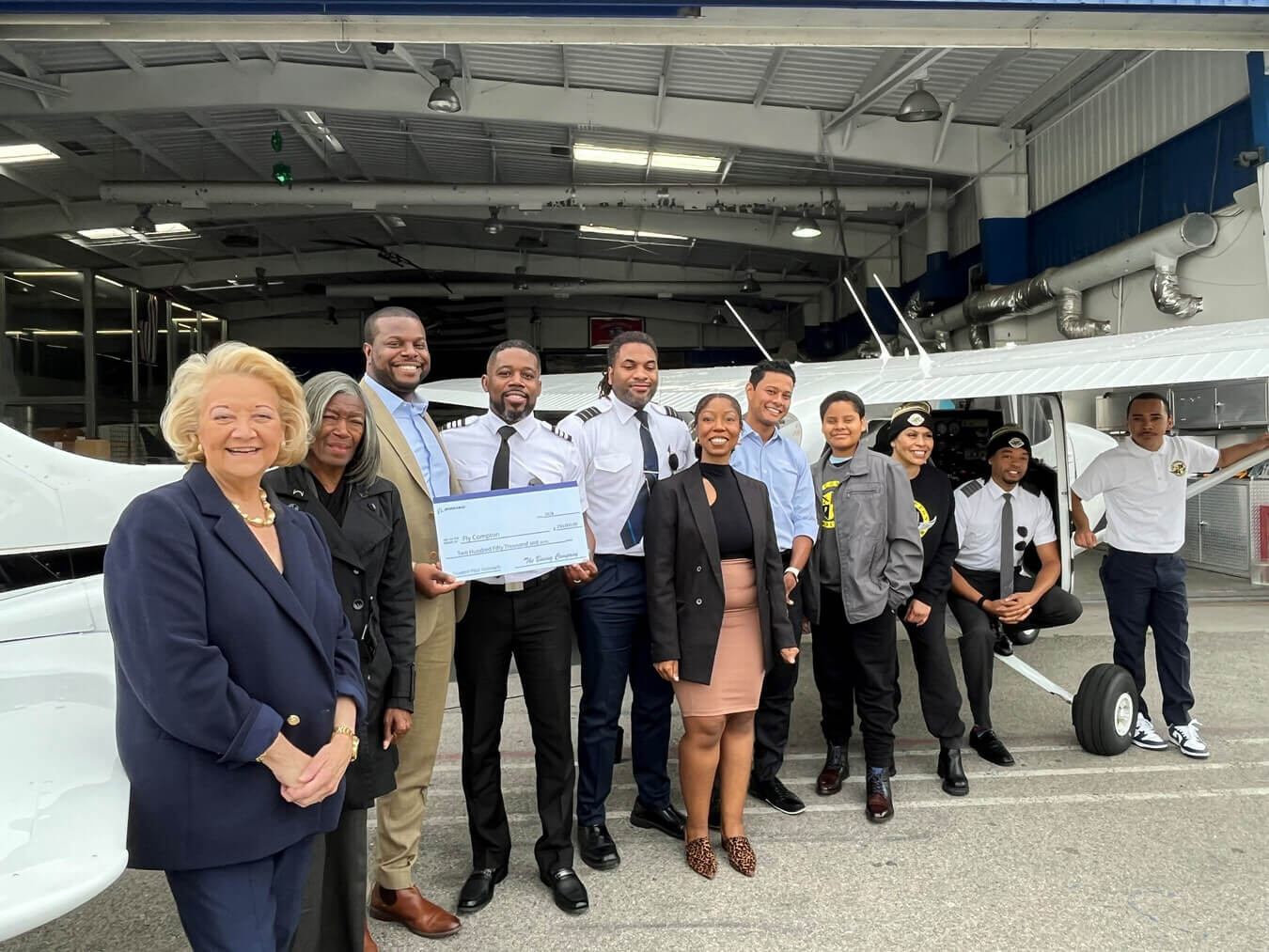Diversifying the talent pipeline for careers in aviation

Boeing leaders present a check to Fly Compton. Funds will go toward flight training classes offered to underserved students in LA’s Compton community. (photo: Fly Compton)
Funds will help underserved students in LA’s Compton community
Boeing is investing $950,000 in scholarships for pilot training to grow and diversify talent required to meet significant long-term demand for commercial airplane pilots.
Boeing is donating $500,000 to fund 25 scholarships with five aviation organizations committed to developing future pilots, including: Aircraft Owners and Pilots Association; Latino Pilots Association; Organization of Black Aerospace Professionals; Sisters of the Skies; Women in Aviation International.
Boeing is also donating $450,000 to Fly Compton, a Los Angeles-based nonprofit that introduces minority youth to career opportunities in aerospace.
“We are grateful for the tremendous support from our partners at Boeing. They continue to demonstrate an unwavering commitment to breaking down barriers for minority youth within the aviation industry, says Demetrius Harris, Fly Compton president and executive director. “At Fly Compton, we know that lack of exposure, access to resources and the high cost of flight training prevents underrepresented populations from exploring careers in aviation. We focus on eliminating these barriers to entry, and this funding package from Boeing helps us continue this important work.”
This investment will increase flight training classes offered to students in L.A.’s Compton community and introduce career topics related to designing, building and maintaining airplanes and drones.
“The demand for qualified and diverse pilots remains high at airlines worldwide. While becoming a pilot provides a lifelong career, access to training remains a barrier to entry for many,” said Ziad Ojakli, executive vice president of Government Operations at Boeing. “These organizations are helping the next generation of pilots realize their full potential while also showing communities that are historically underrepresented in the industry that a future in aviation is possible.”
Long-term demand for newly qualified aviation personnel remains strong. Boeing projects 602,000 new pilots will be needed to fly and maintain the global commercial fleet over the next 20 years. Boeing will release its latest Pilot and Technician Outlook on July 25.
“We are seeing more women and individuals from diverse backgrounds entering the pilot profession because of the mentorship and guidance that aviation organizations like these provide for early career professionals,” said Chris Broom, vice president of Commercial Training Solutions for Boeing Global Services. “The work they’re doing to implement changes needed to remove social and financial barriers to entry are critical.”
Since 2019, Boeing has invested more than $8.5 million to bring pilot training programs to underrepresented populations in communities across the United States.
